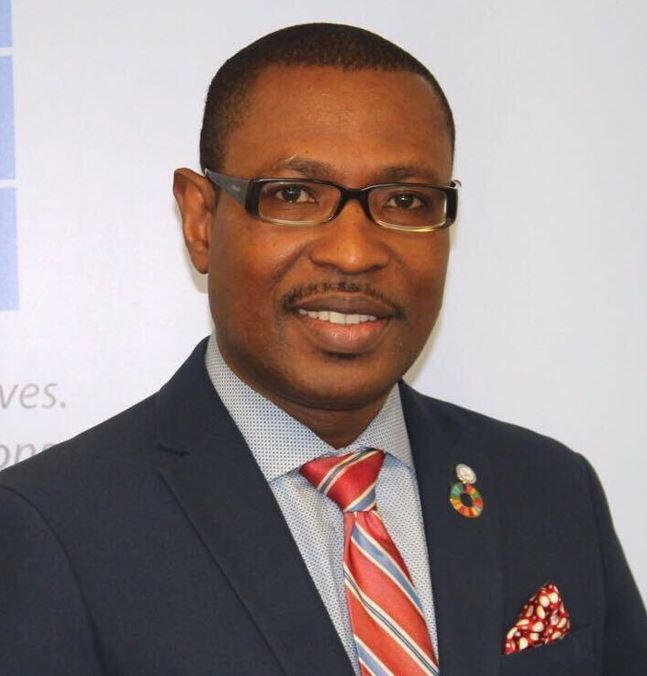Ghanaian-born African Human Development Expert Dr. Ishmael Nii Amanor Dodoo has said that anyone who has the desire to play any leadership role in the transformation of Africa must first transform themselves.
“Growing up in Africa and working across the continent throughout my career, I have come to the conclusion that the only way to effectively solve the myriad of challenges facing Africa is for those at the forefront of bringing about those changes to transform themselves first,” he stated.
Dr. Dodoo, who is also a Senior Strategy Advisor to governments, UN and multilateral institutions, was speaking in an interview with Global Award-Winning Management Consultant, Executive Coach, Author and Speaker, Modesta Mahiga, on her 360 Leadership Podcast.
Dr. Dodoo thinks current and prospective African leaders need to have the right mindset, competencies, skills, philosophies and personal values to couch their vision, if they were to effectively addresses the challenges of the continent.
He explained that Africa is a very multi-dimensional continent with several cultures, religions, systems and structures, but many people don’t take the time to understand the continent and its dynamics before choosing to take leadership positions on the continent.
According to him, the philosophy of the Africans, their indigenous systems and structures in terms of how things are done on the continent are all things that need to be properly unravelled through anthropological studies to serve as a resource for anyone who desires to be at the forefront of Africa’s transformation.
“Anyone seeking to lead in any African country – whether in politics, business or within the socio-economic space with a vision to help transform Africa – must first transform themselves and rethink their approach to dealing with the peoples, systems and structures. You can’t give what you don’t have – that is the philosophy I am driving right now,” said Dr. Dodoo, who is also a renowned voice on youth leadership, influence and self-transformation for effective governance.
Dr. Dodoo further stated that several Africans with the benefit of western education, who are seeking leadership roles in Africa, tend to think they wield some superior knowledge and skills that make them better placed than the people on the continent to lead the transformation of the continent, but that notion is wrong.
According to him, having travelled across and worked in, at least, 36 African countries on the ticket of the UN and other multilateral institution as advisor on human development and consultant to several presidents, he can tell that Africa has very talented and intelligent people, except that the systems, structures and cultures are vast and varied and those are nuisances that anyone seeking to lead the transformation of the continent cannot ignore.
He believes Africa is poised to be at the forefront of global transformation in the 22nd century, but that will take leaders who are willing to transform themselves, beginning with an introspective look at their own personal inspiration, purpose and values, and how those are linked to their desire to lead African states.
“Anyone seeking to lead the transformation of Africa first needs to ask himself what inspires them, what is their purpose in life, and what are the lenses (values) through which they view the world. If those three elements are more selfish than for the greater good, then you have no business going into leadership in Africa,” he said.
Dr. Dodoo argued that majority of people in politics on the African continent got in either by chance or by accident because a family member or friend was in there and offered them an opportunity to also get in and gain some personal benefit, and that is why the problems of Africa are still not being solved.
He, however, believes there are still a few people in politics who are driven by a genuine desire to transform the continent and those are his focus to work together with them to get Africa into the position where it can lead the world to glory in the 22nd century.
The elephant and lion analogy
Dr. Dodoo told a mythical story from his late dad about why the elephant is the biggest animal in the jungle, but the lion is the king of the jungle. He said the elephant was seen by all jungle dwellers as problematic because its movement and loud trumpeting sounds usually scared everyone, destroyed plants and made everyone uncomfortable.
The animals and plants, therefore, met and decided the elephant was a problem that needed to be removed in the interest of everyone. So, they made the lion king and the lion decided that the elephant would serve a better purpose dead than alive. It should be killed and eaten instead of being allowed to move around and scare everyone.
“That is why when there is a big problem at hand in meetings, we often describe it as the ‘elephant in the room’. In other words, we need to remove the elephants in leadership positions on the African continent before we can really have peace and the conducive atmosphere to bring transformation,” he said. “The elephant in the room, in this case, refers to those in leadership for selfish interest rather than for the greater good of the continent.”










